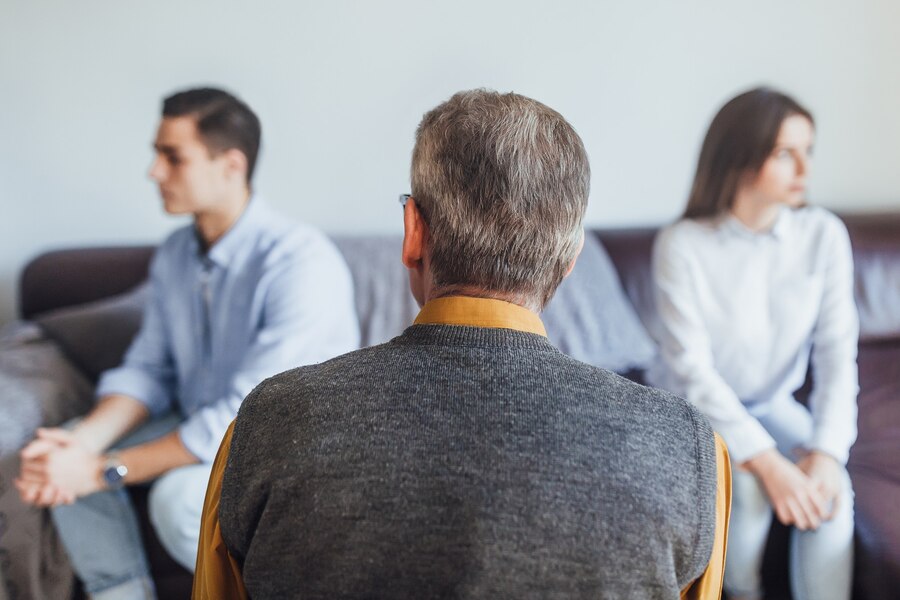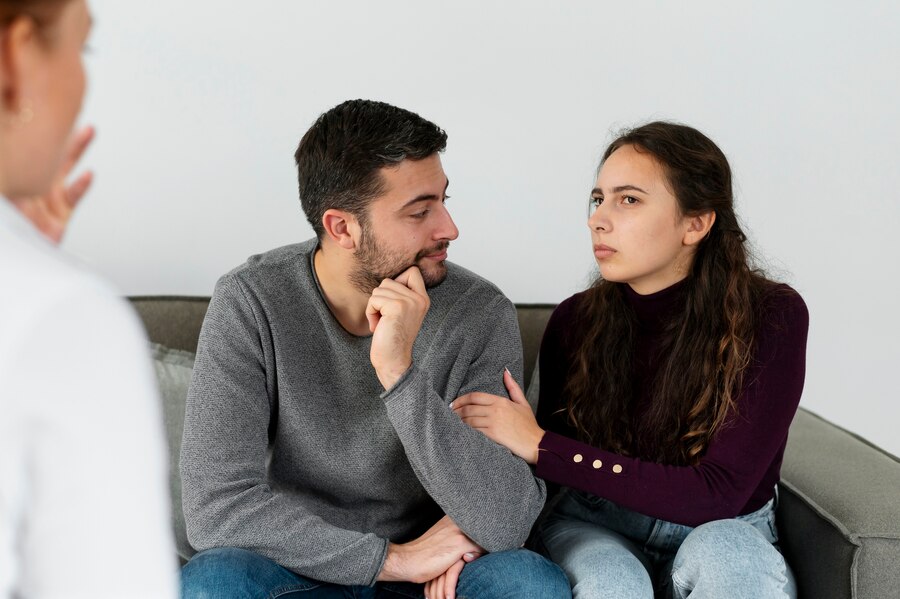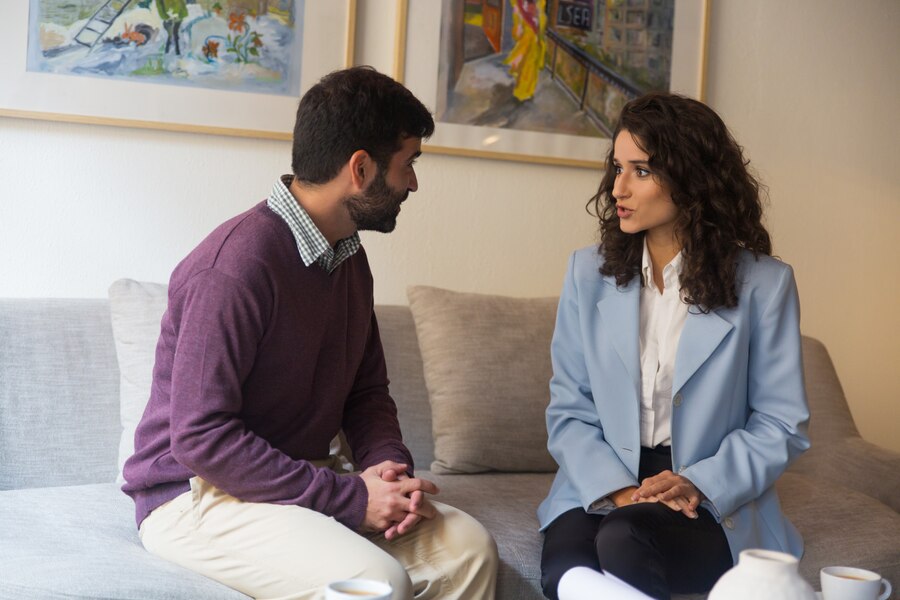Types of Couples Rehab Programs
Couples rehab programs are specialized treatment options designed to address substance abuse and related issues within the context of a romantic relationship. These programs cater to couples who are struggling with addiction and aim to provide integrated support to both partners simultaneously. At Couples Rehabs in Orange County, we recognize the unique challenges faced by couples in recovery and offer a variety of programs tailored to meet their specific needs. This guide explores the different types of couples rehab programs available, each with its own focus and benefits.
Contact Us for Professional Services 888-325-2454
Inpatient Couples Rehab Programs
Inpatient couples rehab programs offer a structured and immersive treatment environment where both partners reside at a rehabilitation facility for the duration of their treatment. This type of program provides a comprehensive approach to recovery, with 24/7 medical supervision, individual and couples therapy, and various therapeutic activities.
The key advantage of inpatient rehab is the controlled environment that minimizes external distractions and triggers, allowing couples to focus entirely on their recovery. Inpatient programs often include intensive therapy sessions, group therapy, and skill-building exercises designed to address both substance abuse issues and relationship dynamics. The immersive nature of inpatient rehab supports deep, sustained recovery and fosters strong bonds between partners.
Benefits of Inpatient Rehab
Inpatient rehab offers several significant benefits for couples undergoing treatment. One major advantage is the continuous access to medical and therapeutic support, which can be crucial for managing withdrawal symptoms and co-occurring mental health issues. The structured setting also provides a safe space for couples to work through their challenges without the interruptions and temptations of everyday life.
Additionally, inpatient rehab programs facilitate intensive, focused therapy, including individual counseling, couples therapy, and group sessions. This comprehensive approach helps couples address the root causes of their addiction, improve communication, and develop healthier relationship patterns. The support and accountability provided by the inpatient environment contribute to a more successful and lasting recovery for both partners.
Outpatient Couples Rehab Programs
Outpatient couples rehab programs offer a flexible treatment option that allows partners to continue living at home while attending therapy and support sessions at scheduled times. This type of program is ideal for couples who have stable home environments and require a less intensive level of care.
Outpatient programs typically include individual therapy, couples counseling, and group therapy sessions. They offer the advantage of integrating treatment into daily life, which can be beneficial for couples who need to maintain work or family responsibilities while undergoing treatment. The flexibility of outpatient rehab allows couples to apply the skills they learn in therapy to real-life situations, promoting practical recovery and relationship growth.
Types of Outpatient Programs
Outpatient rehab programs can vary in their structure and intensity. Common types include:
- Standard Outpatient Programs: These involve regular therapy sessions, typically a few times a week, and provide essential support for managing addiction and improving relationship dynamics.
- Intensive Outpatient Programs (IOP): IOPs offer a higher level of care than standard outpatient programs, with more frequent sessions and a more comprehensive approach to therapy and support.
- Partial Hospitalization Programs (PHP): PHPs provide a higher level of care than standard outpatient programs but do not require full-time residence. They offer intensive therapy and support during the day, with clients returning home in the evenings.
Each type of outpatient program is designed to meet different needs and preferences, allowing couples to choose the option that best fits their circumstances and recovery goals.
Luxury Couples Rehab Programs
Luxury couples rehab programs offer an upscale and comfortable treatment environment, often featuring high-end accommodations and amenities. These programs provide a premium experience, with personalized care and a focus on creating a serene and supportive atmosphere for recovery.
Luxury rehab programs typically include private therapy sessions, gourmet meals, spa treatments, and other high-end services designed to enhance the recovery experience. The emphasis on comfort and luxury helps reduce stress and improve overall well-being, allowing couples to focus on their recovery and relationship development in a supportive and relaxing environment.

Faith-Based Couples Rehab Programs
Faith-based couples rehab programs integrate spiritual and religious principles into the treatment process. These programs provide support through a faith-centered approach, incorporating prayer, spiritual counseling, and religious practices into therapy.
Faith-based rehab programs cater to couples who wish to incorporate their spiritual beliefs into their recovery journey. By addressing addiction through the lens of faith, these programs aim to strengthen the spiritual connection between partners and provide a supportive community that shares their values. This approach can be particularly meaningful for couples who find comfort and motivation in their religious or spiritual practices.
Holistic Couples Rehab Programs
Holistic couples rehab programs focus on treating the whole person—mind, body, and spirit—through a range of complementary therapies and practices. These programs incorporate traditional treatments with alternative approaches such as acupuncture, yoga, meditation, and nutrition counseling.
The holistic approach aims to promote overall well-being and balance, addressing not just the addiction but also the underlying emotional, physical, and spiritual issues. By integrating holistic practices into the treatment plan, couples can experience a more comprehensive and personalized recovery process that supports their entire being.
Dual Diagnosis Couples Rehab Programs
Dual diagnosis couples rehab programs are designed for couples who are struggling with both substance abuse and co-occurring mental health disorders. These programs provide specialized care to address the complexities of dual diagnosis, offering integrated treatment for both addiction and mental health issues.
Dual diagnosis programs include a combination of substance abuse treatment and mental health therapy, with a focus on managing symptoms and improving overall mental health. By addressing both conditions simultaneously, these programs help couples achieve a more stable and sustainable recovery, reducing the risk of relapse and promoting long-term well-being.
Couples Therapy Programs
Couples therapy programs are an integral component of many rehab programs, focusing on improving communication, resolving conflicts, and strengthening the relationship between partners. These programs provide a structured setting for couples to work through their issues, learn effective communication skills, and develop healthier relationship patterns.
In couples therapy, both partners participate in counseling sessions designed to address relationship dynamics, emotional intimacy, and mutual support. This therapeutic approach helps couples build a stronger foundation for recovery, enhance their emotional connection, and navigate the challenges of addiction together.
Start Your Recovery Journey Today
Choosing the right couples rehab program is essential for addressing both substance abuse and relationship challenges effectively. At Couples Rehabs, we offer a range of programs tailored to meet the diverse needs of couples, including inpatient, outpatient, luxury, faith-based, holistic, dual diagnosis, and couples therapy options. Each program provides unique benefits and focuses on different aspects of recovery, allowing couples to select the approach that best aligns with their goals and circumstances. By exploring these options, couples can find the support and resources needed to achieve lasting recovery and strengthen their relationship. Contact us today to discover how our tailored programs can support your journey to recovery and relationship healing.

1. What is inpatient couples rehab, and who is it suitable for?
Answer: Inpatient couples rehab provides intensive treatment in a residential setting. It’s ideal for couples with severe addiction or those requiring a structured environment for recovery.
2. What is outpatient couples rehab, and how does it differ from inpatient?
Answer: Outpatient couples rehab allows you to live at home while attending therapy sessions. It’s suitable for couples with less severe addictions or those with work or family commitments.
3. What is a hybrid couples rehab program?
Answer: A hybrid program combines elements of both inpatient and outpatient care. It offers flexibility and allows for a gradual transition back into daily life.
4. Are there specialized couples rehab programs for specific addictions?
Answer: Some programs focus on specific addictions like alcohol, opioids, or co-occurring disorders. Couples Rehabs can help you find a program tailored to your needs.
5. What is dual diagnosis couples rehab?
Answer: Dual diagnosis couples rehab addresses addiction and co-occurring mental health conditions simultaneously. It provides specialized care for couples facing both challenges.
6. What is the role of therapy in couples rehab programs?
Answer: Therapy is a cornerstone of couples rehab. It includes individual, couples, and group therapy sessions to address addiction, relationship issues, and communication.
7. Are there couples rehab programs specifically designed for LGBTQ+ couples?
Answer: Some programs offer specialized services for LGBTQ+ couples, creating a safe and inclusive environment for recovery.
8. What is the difference between traditional couples therapy and couples rehab?
Answer: Couples rehab focuses on addiction recovery within the context of the relationship, addressing both individual and couple-related challenges. Traditional couples therapy may not specifically address addiction.
9. Do couples rehab programs offer aftercare services?
Answer: Many programs include aftercare plans to support long-term recovery. This may involve continued therapy, support groups, or relapse prevention strategies.
10. How can I find the right couples rehab program for my partner and me?
Answer: Consider factors like location, treatment approach, cost, and insurance coverage. Couples Rehabs can help you find the best program based on your specific needs.















Recent Comments